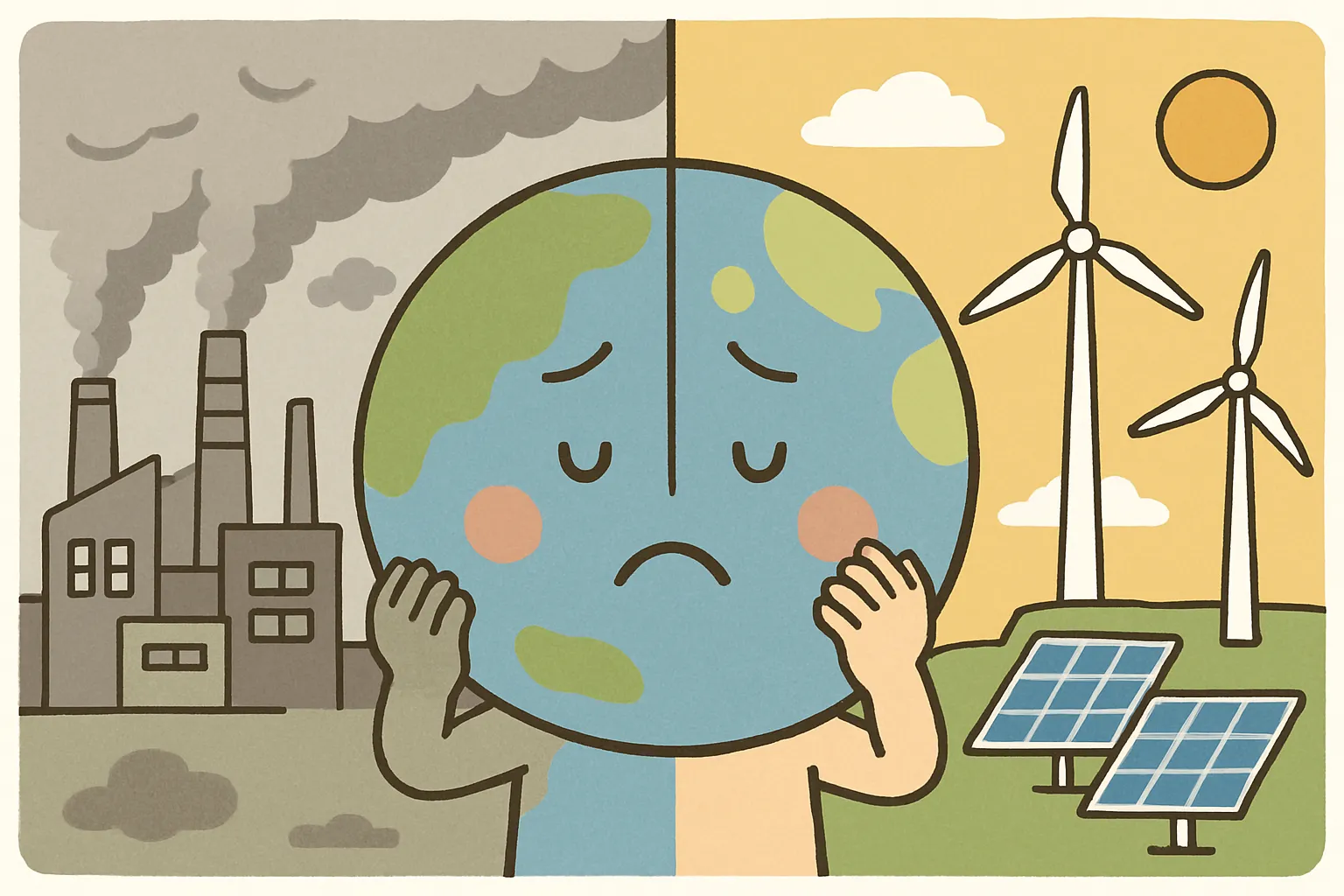Super Typhoons & Rising Seas: Discuss Climate Change in Korean
Hello! This is Maeil Hangul (매일한글), here to upgrade your Korean skills to the next level!
Today, we’re diving into a topic that’s both scientifically fascinating and incredibly relevant: climate change. Specifically, we’ll learn how to discuss the connection between rising sea temperatures and the intensification of typhoons. This vocabulary is perfect for understanding Korean news reports, participating in academic discussions, or simply having deeper conversations about important global issues.
Lately in Korea, the summer and autumn news cycles have been dominated by discussions of “super typhoons” (초강력 태풍) and record-breaking weather. This isn’t just small talk anymore; it’s a major social and environmental issue. Ready to learn how to talk about it like an informed native speaker? Let’s get started!
Core Expressions You Need to Know
Here are some key expressions that will allow you to discuss this complex topic with nuance and precision.
1. 기상 이변 (Gisang Ibyeon)
- Pronunciation [Romanized]: Gi-sang i-byeon
- English Meaning: Extreme weather event; climatic anomaly
- Detailed Explanation: This is a formal, almost academic term you’ll frequently encounter in news articles, documentaries, and serious discussions about the weather. It refers to unusual or extreme weather phenomena that deviate significantly from the norm, such as severe droughts, floods, or unusually powerful typhoons. It’s the perfect term to elevate your description of a crazy weather event.
2. ~으로 인해 (-(eu)ro inhae)
- Pronunciation [Romanized]: -(eu)ro in-hae
- English Meaning: Due to; as a result of
- Detailed Explanation: This grammatical pattern is used to indicate a cause or reason for a certain result. It’s more formal and literary than the common
~때문에(because of). You’ll see~으로 인해used extensively in written reports, presentations, and news broadcasts to explain cause-and-effect relationships in a formal, objective tone.- Use ~으로 인해 after a noun ending in a consonant (e.g., 지구 온난화으로 인해).
- Use ~로 인해 after a noun ending in a vowel (e.g., 이상 기후로 인해).
3. 전례 없는 (Jeollye eomneun)
- Pronunciation [Romanized]: Jeol-lye eom-neun
- English Meaning: Unprecedented; record-breaking
- Detailed Explanation: This powerful adjective literally means “without a preceding example.” It’s used to emphasize that something has never happened before in terms of scale, intensity, or nature. It adds a sense of gravity and historical significance to your statement. You can use it to modify nouns like
폭염(heatwave),피해(damage), or위기(crisis).
4. 심각성을 인지하다 (Simgakseong-eul injihada)
- Pronunciation [Romanized]: Sim-gak-seong-eul in-ji-ha-da
- English Meaning: To recognize/perceive the seriousness of (a situation)
- Detailed Explanation: This is a formal phrase that combines
심각성(seriousness) and인지하다(to perceive/recognize). It’s often used when urging for action or acknowledging the gravity of a problem like climate change, social issues, or an economic crisis. Using this phrase shows a high level of understanding and concern.
Example Conversation
Let’s see how these expressions work in a natural conversation between two colleagues watching the news.
A: 뉴스 봤어요? 이번 태풍의 세력이 전례 없는 수준이라고 하네요.
(Bwasseoyo? Ibeon taepung-ui seryeog-i jeollye eomneun sujun-irago haneyo.)
Did you see the news? They’re saying the strength of this typhoon is unprecedented.
B: 네, 저도 봤어요. 또 하나의 기상 이변인 것 같아요. 전문가들은 해수 온도 상승으로 인해 태풍이 점점 더 강해진다고 분석하더군요.
(Ne, jeodo bwasseoyo. Tto hana-ui gisang ibyeon-in geot gatayo. Jeonmungadeul-eun haesu ondo sangseung-euro inhae taepung-i jeomjeom deo ganghaejindago bunseokhadeogunyo.)
Yes, I saw that too. It seems like another extreme weather event. Experts were analyzing that due to rising sea temperatures, typhoons are getting progressively stronger.
A: 맞아요. 이제는 정말 정부와 시민 모두가 이 문제의 심각성을 인지하고 함께 대응해야 할 때예요.
(Majayo. Ijeneun jeongmal jeongbu-wa simin modu-ga i munje-ui simgakseong-eul injihago hamkke daeeung-haeya hal ttaeyeyo.)
Exactly. Now is truly the time for both the government and the citizens to recognize the seriousness of this issue and respond together.
Culture Tip & Trend Deep Dive
In Korea, discussions about climate change are becoming increasingly mainstream, especially among the Millennial and Gen Z populations. While news reports use formal terms like the ones we learned today, on social media, you’ll see a more personal and action-oriented response.
For instance, the hashtag #제로웨이스트 (#ZeroWaste) is a huge trend on Instagram. Young Koreans share tips on reducing plastic use, from using tumblers (텀블러) and reusable bags (장바구니) to visiting “refill stations” (리필 스테이션) where you can refill household products without buying new packaging. This grassroots movement is a direct response to the larger environmental anxieties fueled by news of 기상 이변.
So, when you use a phrase like 심각성을 인지하다, you’re not just using advanced vocabulary; you’re tapping into a significant cultural conversation happening in Korea right now, from the evening news to a university student’s Instagram feed.
Let’s Practice!
Time to put your knowledge to the test. A quick review will solidify what you’ve learned.
- Fill in the blank:
최근 발생한 ( )은/는 기후 변화의 심각성을 보여줍니다.
(The recent ( ) shows the seriousness of climate change.)
Hint: Use the term for “extreme weather event.” -
Sentence Building:
Create a short sentence explaining why forest fires are becoming more frequent, using the grammar pattern ~으로 인해.
Great job today! You’ve learned some high-level vocabulary to discuss one of the most important topics of our time.
Now, we want to hear from you! Try using one of today’s expressions to write a comment below. You could talk about a weather event in your country or share your thoughts on climate change. We can’t wait to read your sentences






